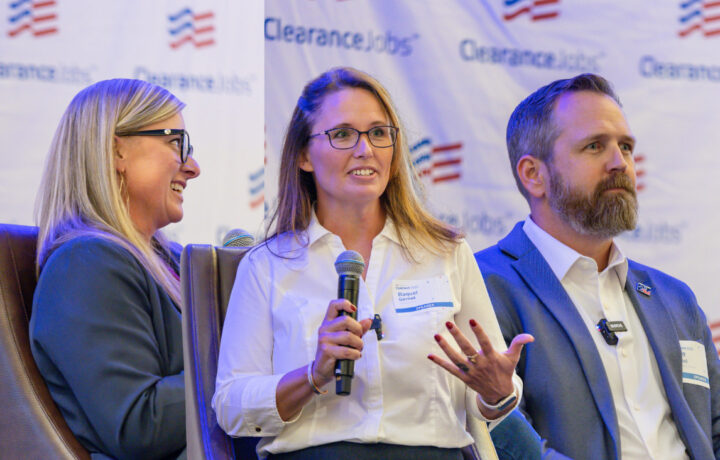Cleared recruiting rewards speed, precision, and trust. In this conversation, DeNOVO Solutions’ talent lead Jeff Paul and contracts pro Raquel Gernat outline how high-performing teams compress time-to-hire and boost offer acceptance—without burning out recruiters or eroding brand.
Define the clock. Time-to-hire starts when a candidate meaningfully engages and ends on their start date. The biggest delays often sit outside a recruiter’s control—prime approvals and customer bottlenecks. Counter that with proactive relationships: program managers respond faster when they know (and trust) the sender.
Operate with urgency. “Time kills all deals.” Paul decentralizes decisions, runs daily stand-ups, and empowers recruiters to issue offers within set bands, accelerating cycle time and signaling respect for the candidate’s time.
Make contracts your superpower. Gernat stresses reading the SOW and knowing workshare. Tight LCAT language, missing equivalencies, or clearance realities can sink timelines; align early on what truly matters, then validate with the PM/tech lead (“What do you really need?”).
Close continuously. Elite teams “always be closing”—re-verifying fit, rates, and red flags every touch. Speed to written offer matters; acceptance rates rise when candidates feel informed, respected, and see their WIIFM (PTO, 401(k), mission, schedule).
Measure what matters. Both speakers have retired volume-based goals that flood managers with marginal resumes. Precision pipelines, acceptance-rate tracking, weekly lessons-learned, and transparent candidate comms keep talent engaged and brands strong.
When rates are capped. Use sign-on bonuses and benefits creatively, and partner closely with pricers—recruiters often have the best market data to set winnable rates on future bids. Bottom line: in national security recruiting, speed + transparency + contract fluency = hires.




